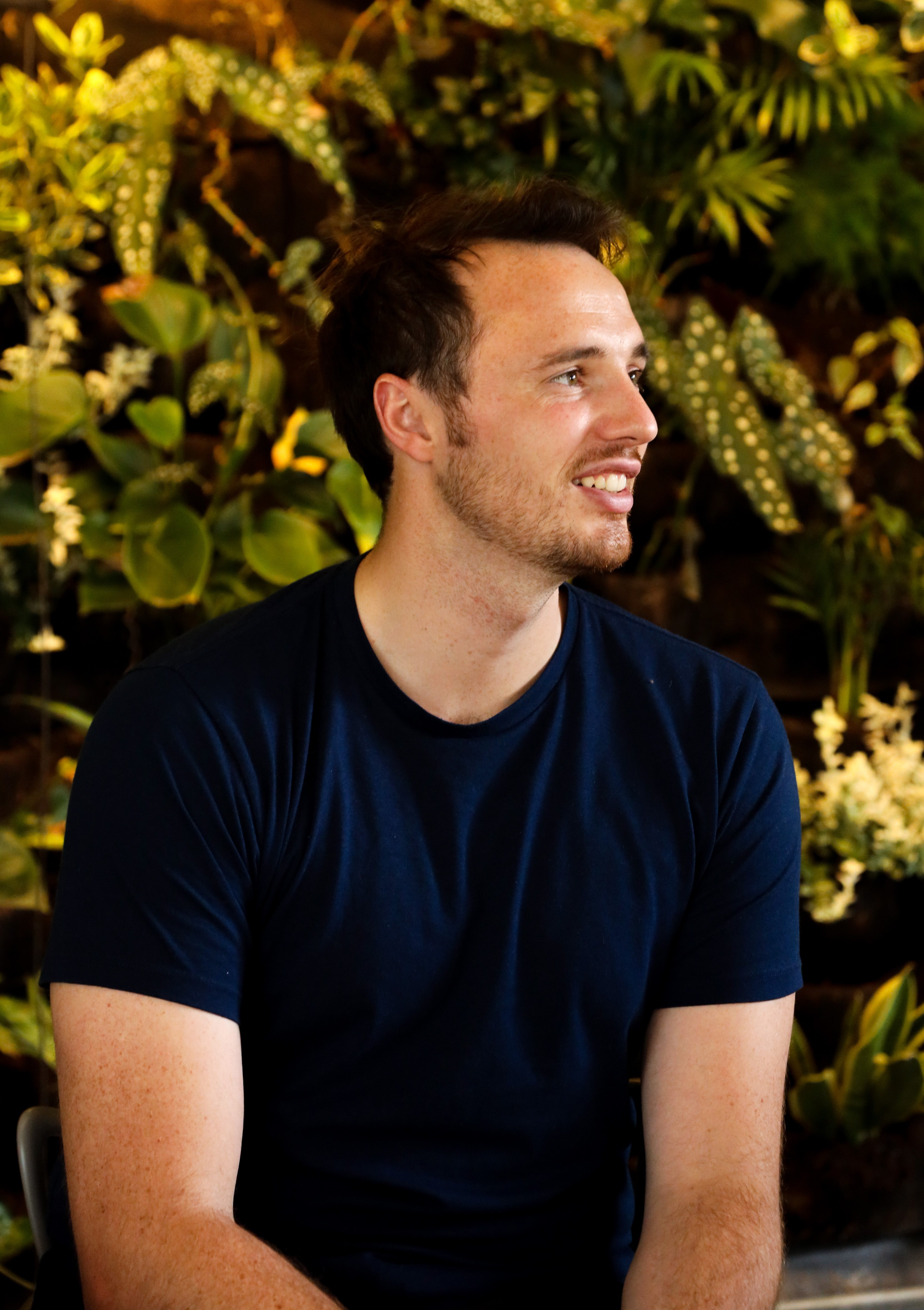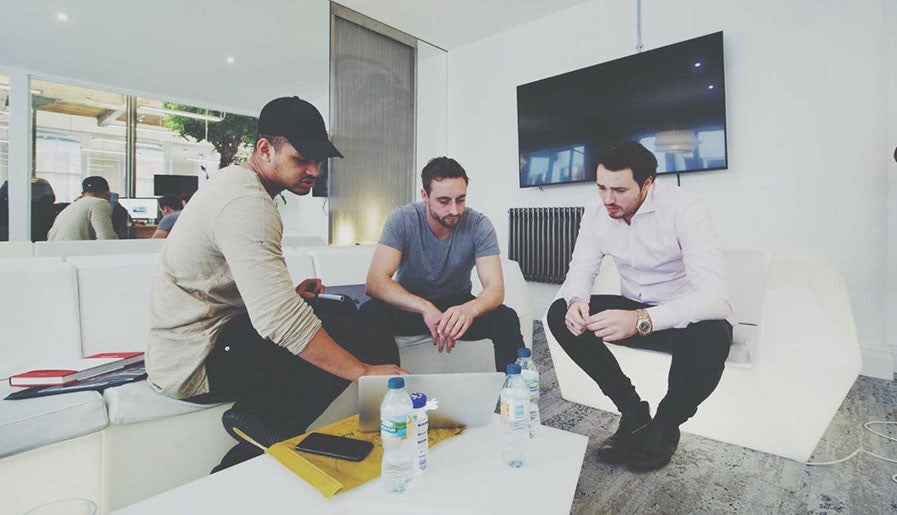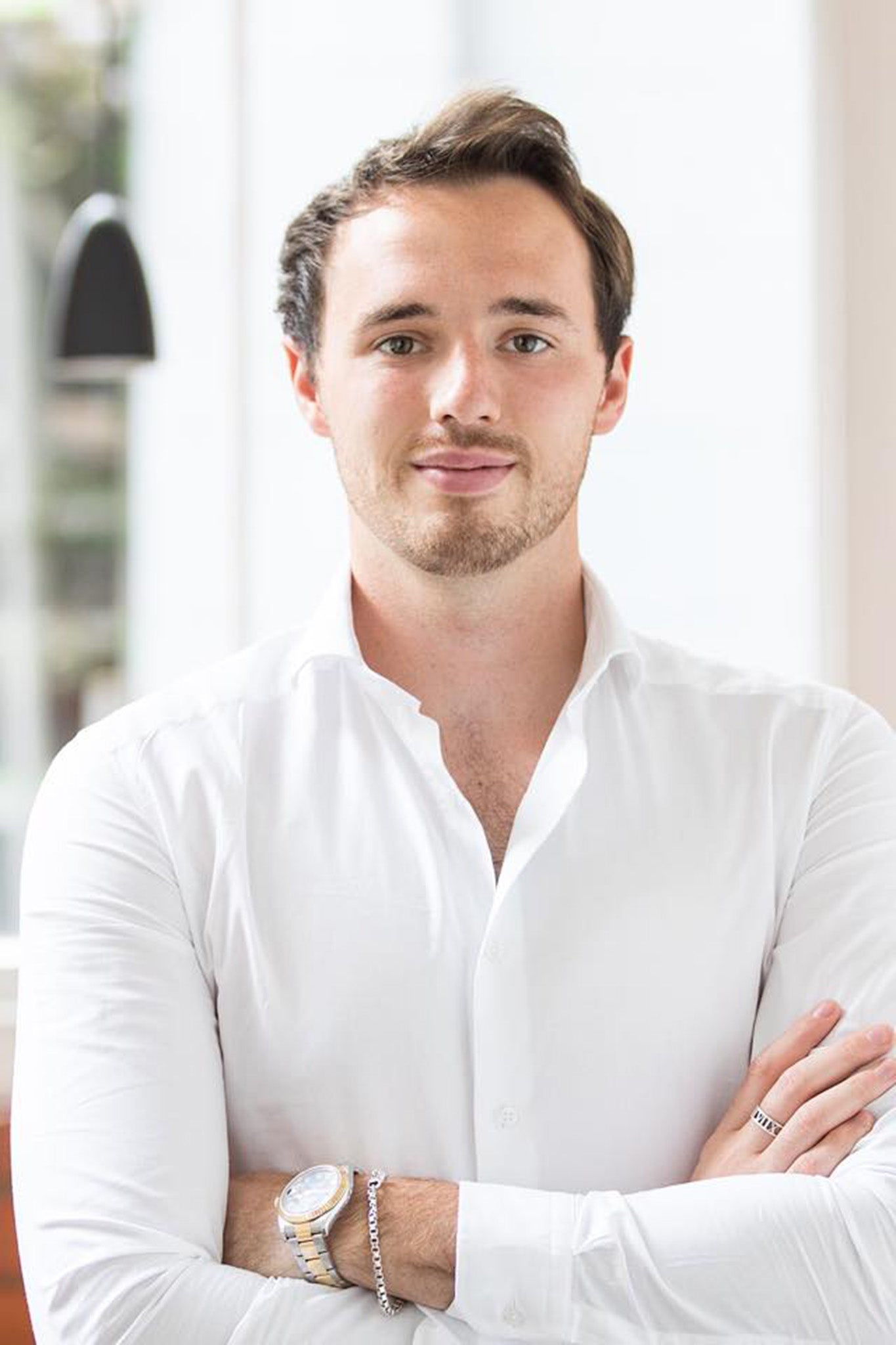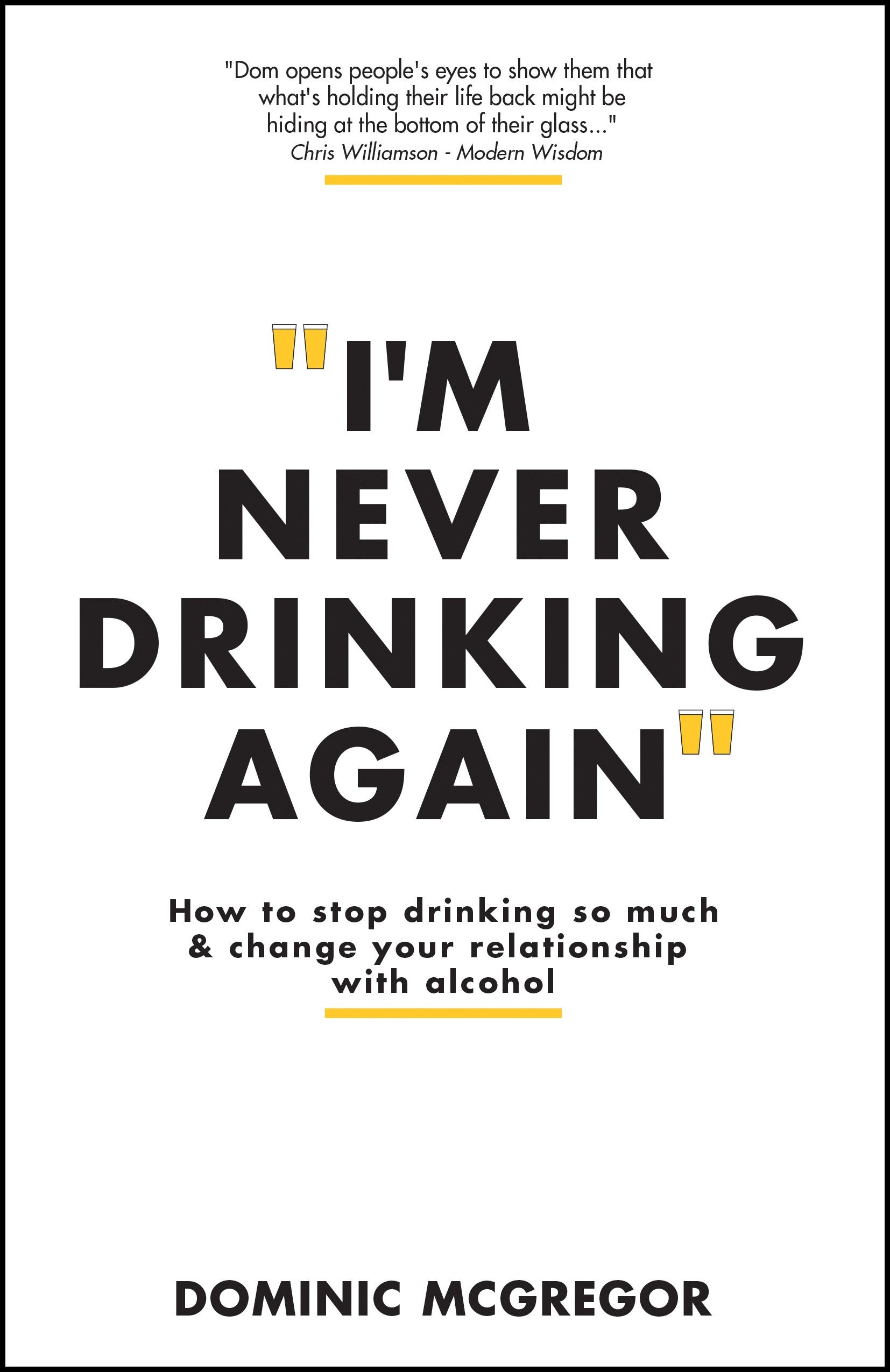‘I hid my imposter syndrome by drinking every day – here’s how I stopped and what you should know’
Dominic McGregor co-founded the start-up that went on to earn Dragons’ Den star Steven Bartlett millions. But, while he watched his business partner soar, booze became a crutch and his life spiralled. Here, he tells Zoë Beaty how he finally got sober and why he thinks more men are in crisis than ever


Seven years ago, Dominic McGregor stood on a train platform, eyes softly closed, breathing deeply. He was 23 and the beneficiary of wild, fast, global success – his company, Social Chain, started with Dragons’ Den star Steven Bartlett when they were just 19 years old, had catapulted him into a world of board meetings, money, and notoriety. Yet, often McGregor found himself here, alone at the edge of a train track. “I would be that person who would just creep over the yellow line,” he says.
“I remember closing my eyes and the train rushing past me, and feeling alive for just a second. I thought if I jumped, my life would be peaceful. That’s how desperate things were.”
For some time, McGregor, now 30, had been drinking every day. In the four years since co-founding the business with Bartlett, there had been plenty of reasons to celebrate – within two years the marketing agency was one of Europe’s most influential, having won numerous awards and established contracts with brands such as Spotify, Microsoft and 20th Century Fox.
“That quote, ‘win or lose, on the booze’ – that kind of became my life,” explains McGregor. “One day we’d be celebrating something, so we’d have a drink. The next day something ridiculously stressful might land on my desk, and the only way I could cope with it was to have a drink.
“We’d installed a bar in the office” – their Social Chain HQ, based in Manchester, also had a slide, ball pit and “puppy park” – “so we’d completely normalised it,” he continues. “I remember once getting up from my desk at, like, 11am and pouring myself a beer. Every business meeting, every lunch meeting, there’d be alcohol around.”
It’s a scenario that will be familiar to many. According to Alcohol Change UK, as many as 24 per cent of adults in England and Scotland drink over the low-risk guidelines, and 27 per cent of drinkers in Great Britain binge drink (over eight units for men and six units for women; a standard 175ml glass of wine contains 2.3 units for reference) on their heaviest drinking days.
According to these guidelines, McGregor was binge drinking most days. He began to find ways to hide his need for a drink, switching groups in the middle of nights out so people wouldn’t see how much he was consuming, or isolating himself at home, “I’d avoid being around people so no one could ‘catch me’ doing it. It was drugs as well, but that was on a much, much more casual basis. It was the drink that was the problem.”
Then, in July 2017, he was invited to a day at the races. After drinking all day, he won £1,000 on the last race of the day and things spiralled.
McGregor says, “I became out of control. My girlfriend caught me texting another woman. A friend, who also worked for the company, had to walk me home because I was thrown out of the bar, and while he was trying to help me into bed, I was telling him to look for another job because I was going to fire him. I shattered his confidence.”

The next day, McGregor woke up with “the worst hangover of my life”, and a call from his business partner, Steven Bartlett. Videos of his behaviour had been circulating among staff – a last straw moment. They agreed to meet in the office, where Bartlett confronted him. McGregor broke down.
“I said to him, this isn’t me. I don’t know what’s going on. I was crying.” He admitted he’d been having extremely dark thoughts and had no confidence or self-esteem left. They agreed that McGregor would find a therapist the next day, who told him that he was suffering from severe anxiety and depression, and using alcohol to self-medicate.
He decided to quit alcohol for three months, a feat that he says “nobody thought I’d be able to do”. He continued working, but attended therapy sessions every week, unpicking deep-seated feelings of imposter syndrome in his position as the owner and director of a company.
The year before starting Social Chain, McGregor started at the University of Edinburgh studying sports science, going out every night and struggling to get up for 3pm lectures.
He was also running a Twitter page aimed at students, posting funny, relatable content and soon attracted thousands of followers – including Steven Bartlett, who had already abandoned his business management degree at Manchester Metropolitan University to pursue his own start-ups.
We’re all looking for the silver bullet in life. If I was to tell you there was a way for your energy levels to improve, your cognition to improve, your sleep; that you’d lose weight… Stopping drinking completely rewires your brain
Bartlett contacted McGregor and together they discussed what would become the Social Chain – a way to connect brands with organic audiences on social media. Soon enough, McGregor left his course too
While friends were worrying about their dissertations, Dominic was worrying about making payroll. It was lonely, he says. “I went from that to running a company in the space of a year. For me, that was completely unmanageable. I could barely look after myself.
“I remember the first time an employee got a car on finance, and thinking, ‘Oh god, we’re responsible for making sure they can pay for it’. Age 20, I was flying out to meet companies like Disney to advise them on their social media. I just kept thinking, who am I to do this? How did I get here?”
McGregor says this imposter syndrome is symptomatic of how men are meant to be seen as infallible – especially if they are in charge. “The underlying tone in business is that no man wants to come across as weak. I think a lot of men really struggle to be honest, which leads to them internalising things, which leads to poor mental health and, probably drink, or other crises.”
As the months of his sobriety went on, though, things became easier. Continuing to work Dominic stopped drinking initially by simply avoiding any situation where there may be alcohol. He’d go to bed when his friends were out partying and spend a lot of time at his parents’ house.
Days and nights passed in a blur, three months became six months. “At that point, my therapist said something to me that stuck. He said, ‘Dom, if we were talking about cocaine, would you go home and celebrate six months off with a line?’ I didn’t drink, and I’ve never drank again.”

It’s now been seven years since McGregor got sober. In that time period, he’s seen a dramatic change in himself, and the life he’s built around him. He and Bartlett left Social Chain in 2020 when it was worth an estimated $300m.
McGregor has since founded a new company, Fearless Adventures, an investment model that supports founder-led start-ups on the path to scalability.
The girlfriend he almost lost during that last, drunken night at the races is now his wife, Bartlett was the best man at McGregor's wedding last year. And he’s just written a book about his sobriety, in the hope of changing attitudes around drinking.
It’s well-timed. According to research, an estimated 40 per cent of drinkers are now trying to moderate their alcohol consumption in the UK, fuelling a boom for the alcohol-free drinks industry, which is now worth £225m.
McGregor wants to shed light on the toxic marketing and cultural integration of alcohol around social and seasonal events like weddings, and share what he’s learned – and the happiness he’s gained – from going sober.

“If you’re thinking about going sober, there are a lot of practical steps you can take, especially in the beginning,” McGregor says. “Like driving to events, or making an excuse like taking antibiotics. But really, my number one advice is to be honest. Be honest with yourself and be honest with people around you. The peer pressure will reduce. What I want is for someone to be able to say, ‘I’m not drinking tonight’, and the response to be, ‘Okay, cool’.
While McGregor didn’t attend AA he completed a course of CBT with his therapist, who had a background in substance abuse, to change the way he thinks about drinking and himself.
“If I hadn’t made a change, I think I’d be dead,” McGregor says. “And for what?” The biggest change for him has been the clarity that stopping drinking has afforded him.
“We’re all looking for the silver bullet in life,” he says. “If I was to tell you there was a way for your energy levels to improve, your cognition to improve, your sleep; that you’d lose weight… Stopping drinking completely rewires your brain. Your life becomes richer in so many ways – your relationships become better because you’re no longer hiding.” “Now I have fun, and I actually remember it. I look at pictures and I’ve got so much more of a natural smile. And now, every single day, I feel like I’ve achieved something by not drinking. I’m happy.”
I'm Never Drinking Again: How to Stop Drinking So Much and Change Your Relationship with Alcohol, by Dominic McGregor is out on 23 May
If you are experiencing feelings of distress, or are struggling to cope, you can speak to the Samaritans, in confidence, on 116 123 (UK and ROI), email jo@samaritans.org, or visit the Samaritans website to find details of your nearest branch.
If you are based in the USA, and you or someone you know needs mental health assistance right now, call or text 988, or visit 988lifeline.org to access online chat from the 988 Suicide and Crisis Lifeline. This is a free, confidential crisis hotline that is available to everyone 24 hours a day, seven days a week.
If you are in another country, you can go to www.befrienders.org to find a helpline near you.
Join our commenting forum
Join thought-provoking conversations, follow other Independent readers and see their replies
Comments

Bookmark popover
Removed from bookmarks